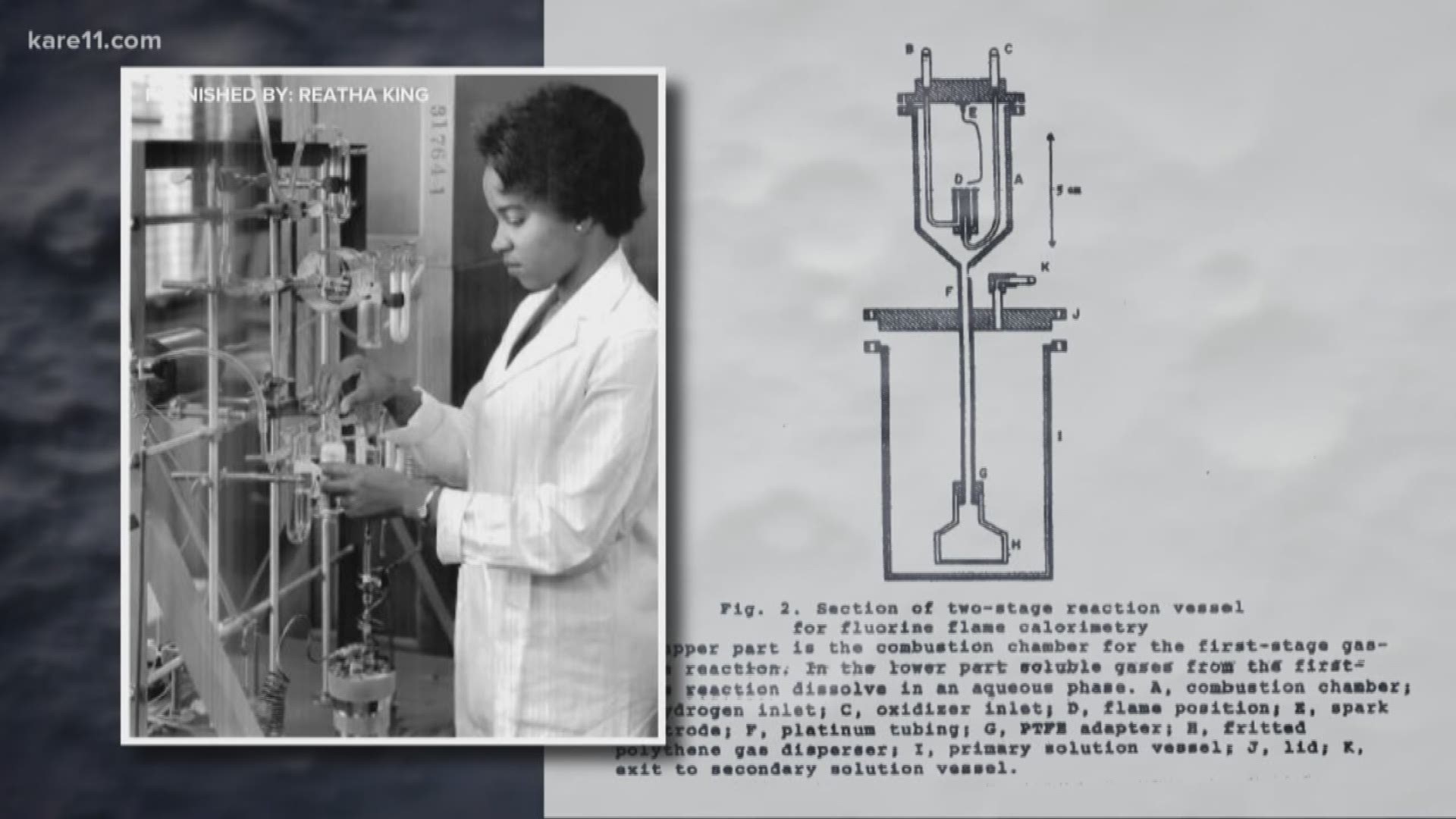GOLDEN VALLEY, Minn. — Fifty years ago the world watched as American astronauts became the first humans to set foot on the moon.
But there are so many unsung heroes who made that mission possible, including Dr. Reatha Clark King, one of the hidden figures who lives in Minnesota.
For years, King kept her heart's desire secret.
She wanted to be a chemist like George Washington Carver, the historic black scientist. But she struggled to tell her family.
“At that time, (Chemistry) was not appropriate to study for girls. I finally broke the news to my mom, in my junior year, that I had changed my major to chemistry and I would be going to graduate school after Clark,” she said. “My aunt said ‘you shouldn't be going to get more education. You should be looking for a husband.’ That is what we women at that time were expected to do.”
But soon after graduation, King helped make the moon landing possible. She worked as a fuel scientist. She designed a special device to measure the heat for rocket fuel systems.
“The NASA project required different specialties. The lift off was one. It required a fuel system. My material was an element or part of the fuel system,” she said. “This compound that I was studying was oxygen difluoride. It is one of the most toxic combustible challenging materials you can ever work with.”
She said she worked on the NASA Project four years. After earning her Ph.D she started working as a principal investigator at the Bureau of Standards when she was 25. She the agency’s first black female chemist. During that time, she worked on a NASA contract for four years. She was contracted to work with NASA for four years during that time.
She said on the day of the Apollo 11 lift off, she was terrified.
“I feared an explosion could happen, and the astronauts could lose their life,” she said. “When I heard the first astronaut speak, it was pure joy. I said, ‘oh thank you, God.’”
King, 81, who went on to become the president of the General Mills Foundation said she saw possibility before man ever set foot on the moon growing up in the deep south. Her parents couldn’t read or write. They were sharecroppers. Long days, in the hot sun was her motivation for something better.
“There is nothing that motivates you like hard work in the cotton field. I recall being 12 years old and picking 200 pounds of cotton,” she said. “I can recall being out there when we had a rest break, I would write my multiplication tables in the sand. I was just that hungry to learn.”
In January, we were there when King received Governor Walz's Civil Rights Legend Award. Indeed, as one of the hidden figures of the NASA Apollo mission she is still encouraging women and young girls to dream bigger.
“I had to keep on discovering ways to make it better. Do you ever reach the point you want to be at? I doubt it. You don't reach perfection because the goal post is still moving,” she said. “Aim for excellence and quality work so nobody can doubt your contribution. I had to keep on discovering ways to make it better. They wanted nothing short of extra ordinary excellence. We knew there was a lot at risk in going to the moon. It had to be as good as it could possibly be.”
She was also the first black president of Metropolitan State University in the Twin Cities and worked at General Mills over a decade.
She is 81. Despite all of the awards and accomplishments in her life, her greatest joy is speaking to children and encouraging the next generation.

